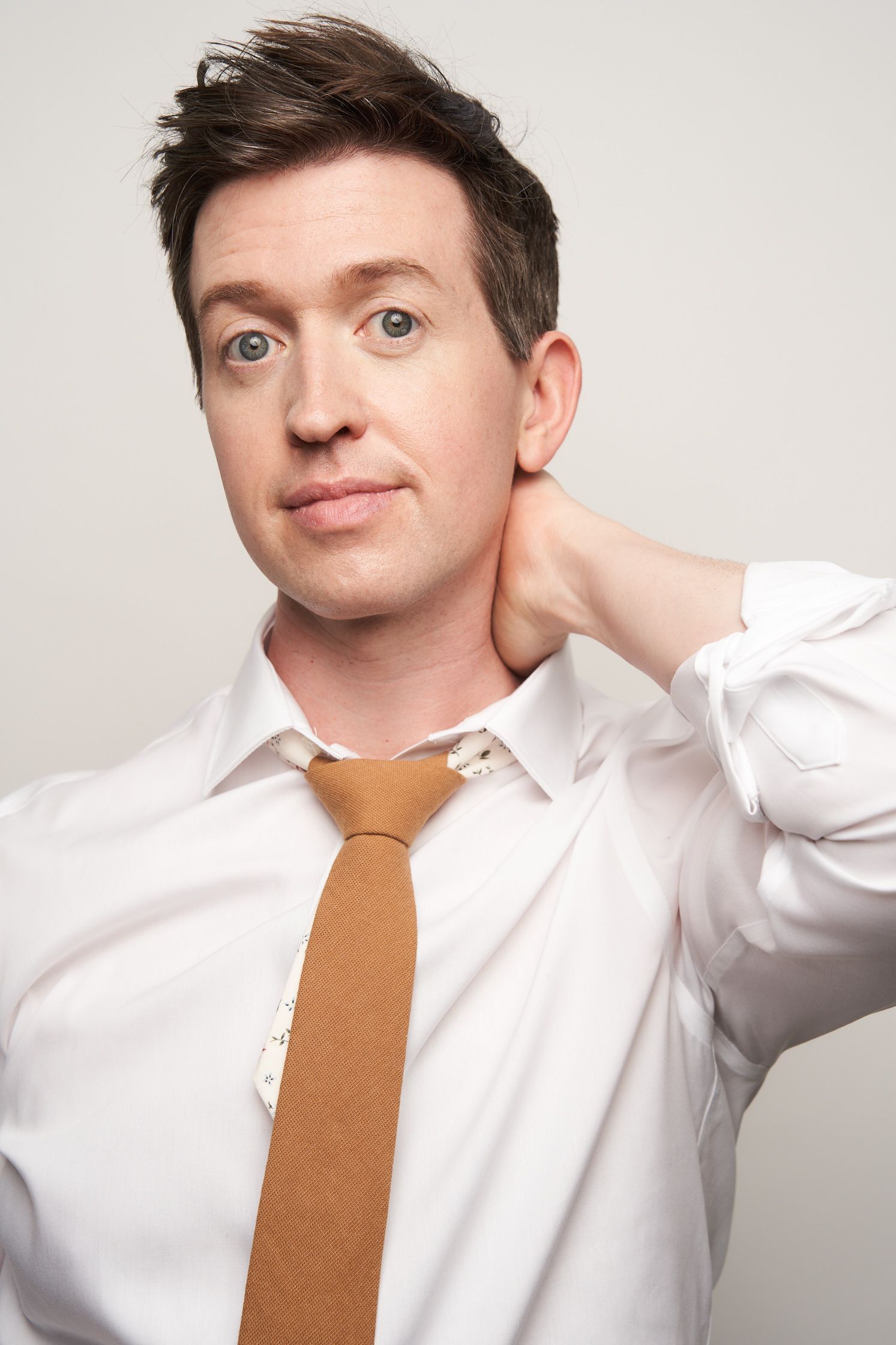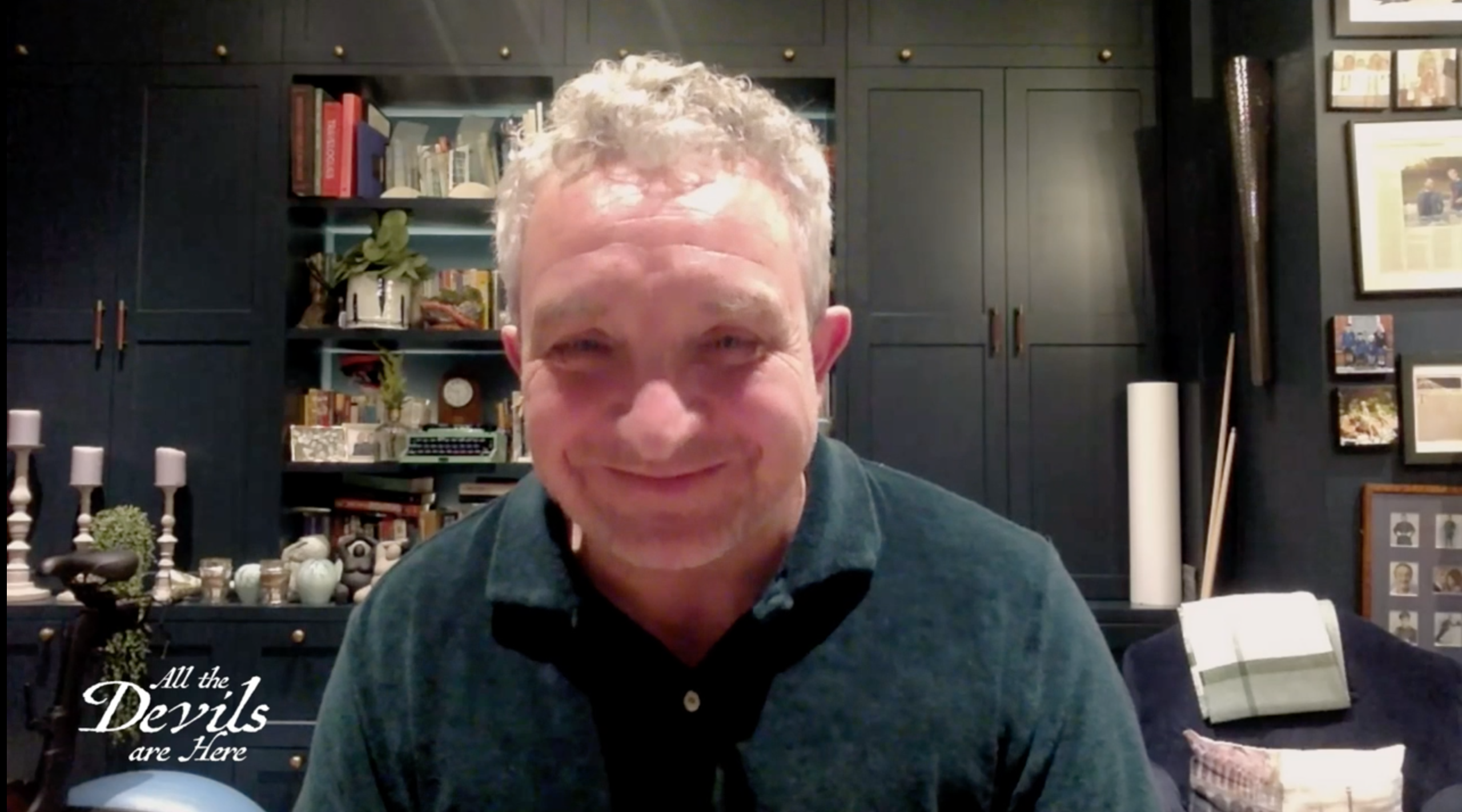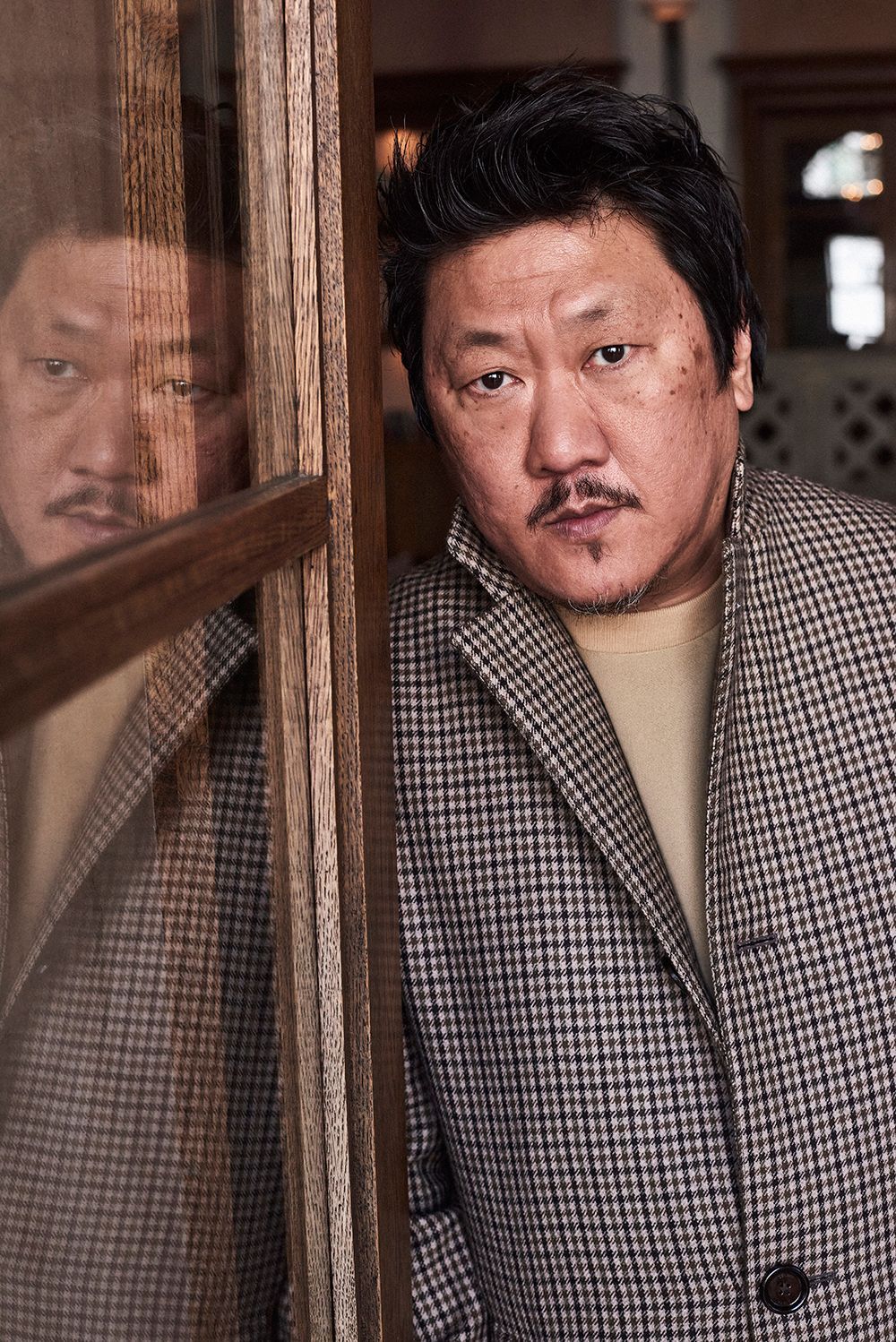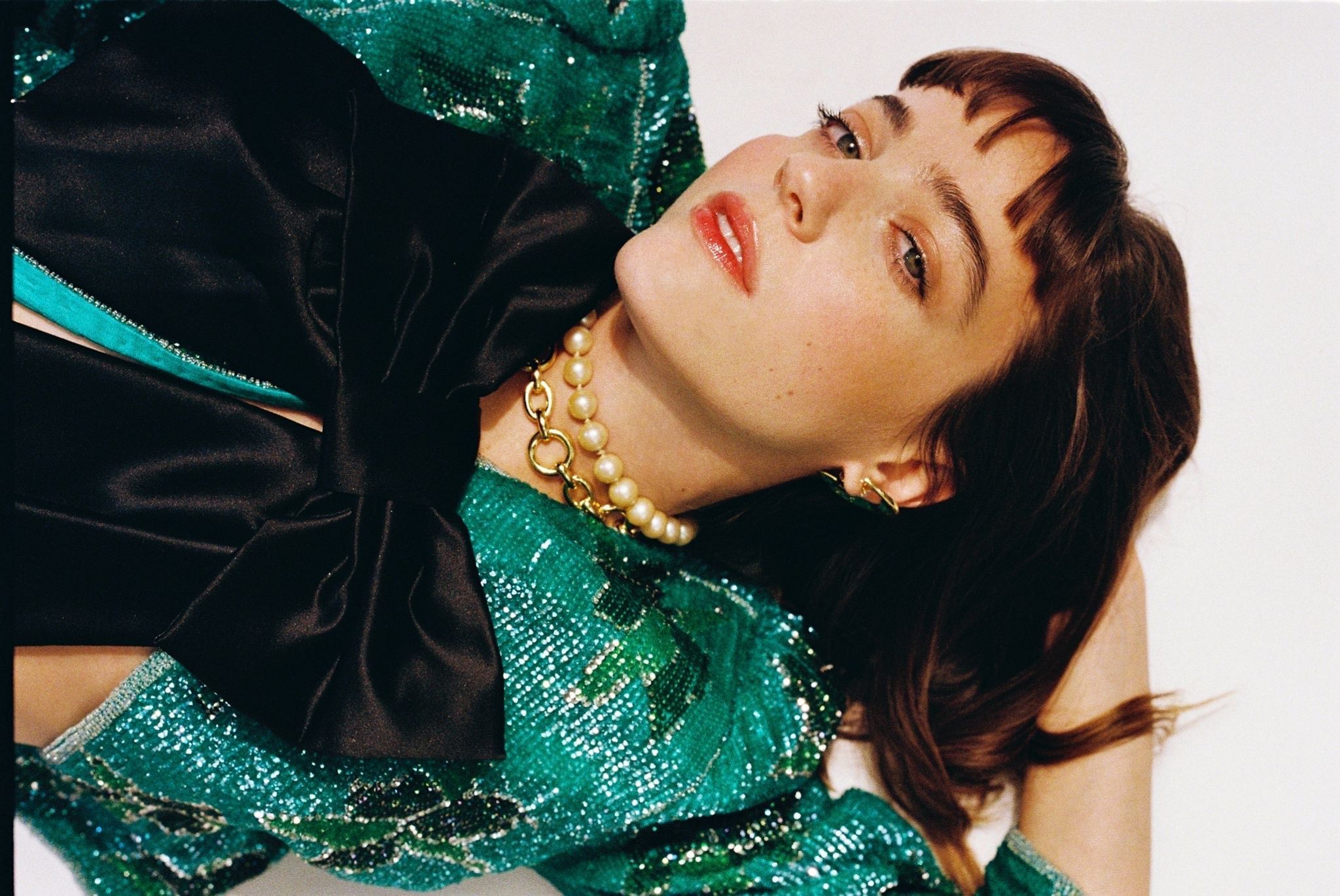Rising actor Nate Mann soars to the challenge of portraying a beloved airman Robert ‘Rosie’ Rosenthal in Apple TV’s Masters of the Air.
For any actor, it’s daunting to portray a real-life person — even more so when they are steeped in American history. When Apple TV announced the adaptation of Donald L Miller’s book Masters of the Air, it seemed like every actor across the United Kingdom and America — from Anthony Boyle to Austin Butler — were attached to the project. The book, which is described as an “authoritative account” of America’s involvement in World War II, was inspired by Miller’s own meeting with Robert ‘Rosie’ Rosenthal, a pilot and an integral figure in the ‘Bloody 100th.’ It’s a role that would require a specific actor — one with a deft approach — to be able to play him authentically. Apple TV found their Rosie in actor Nate Mann — who doesn’t just rise to the challenge of portraying the hero, but soars at it.
Although most of Mann’s resume boasts work across the stage and a role on Ray Donovan, it’s obvious that storytelling is second nature to him. The New York-based actor had the privilege of portraying Robert ‘Rosie’ Rosenthal, one of the many airmen deployed into the US Eighth Air Force’s 100th Bomb Group in the Second World War. Arriving partway through the miniseries, Mann’s portrayal of Rosenthal brings a unique levity to a story that is heavy at best and tragic at worst. Still, Mann’s performance as Rosie is sharp and moving, detailing the decisions the real-life Rosie took to both protect his comrades and country. And despite playing opposite heavyweights like Austin Butler and Callum Turner, Mann proves he’s an actor everyone should be keeping their eyes on.
1883 Magazine sits down with Nate Mann to discuss Masters of the Air, fleshing out Rosenthal’s character, and more.
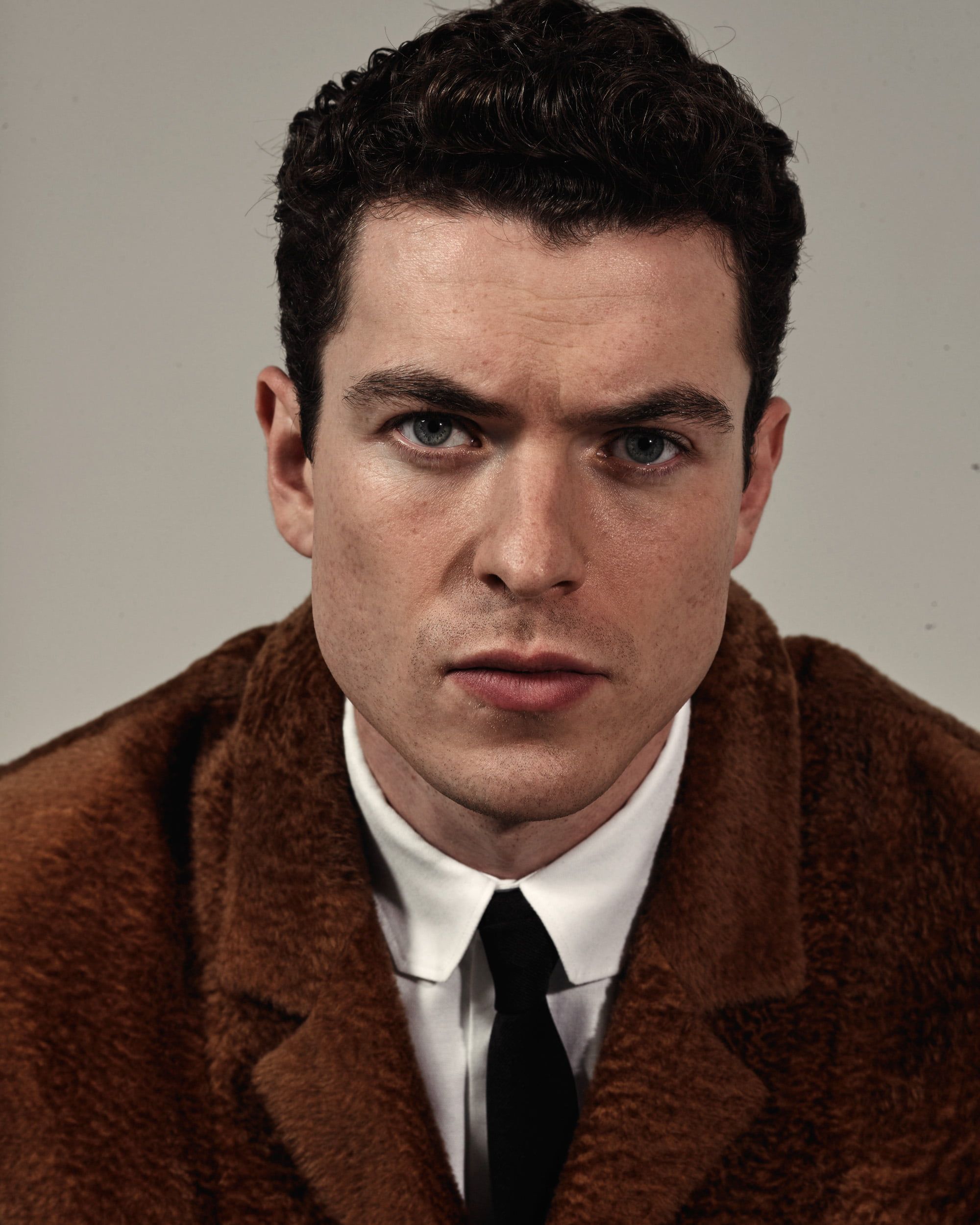

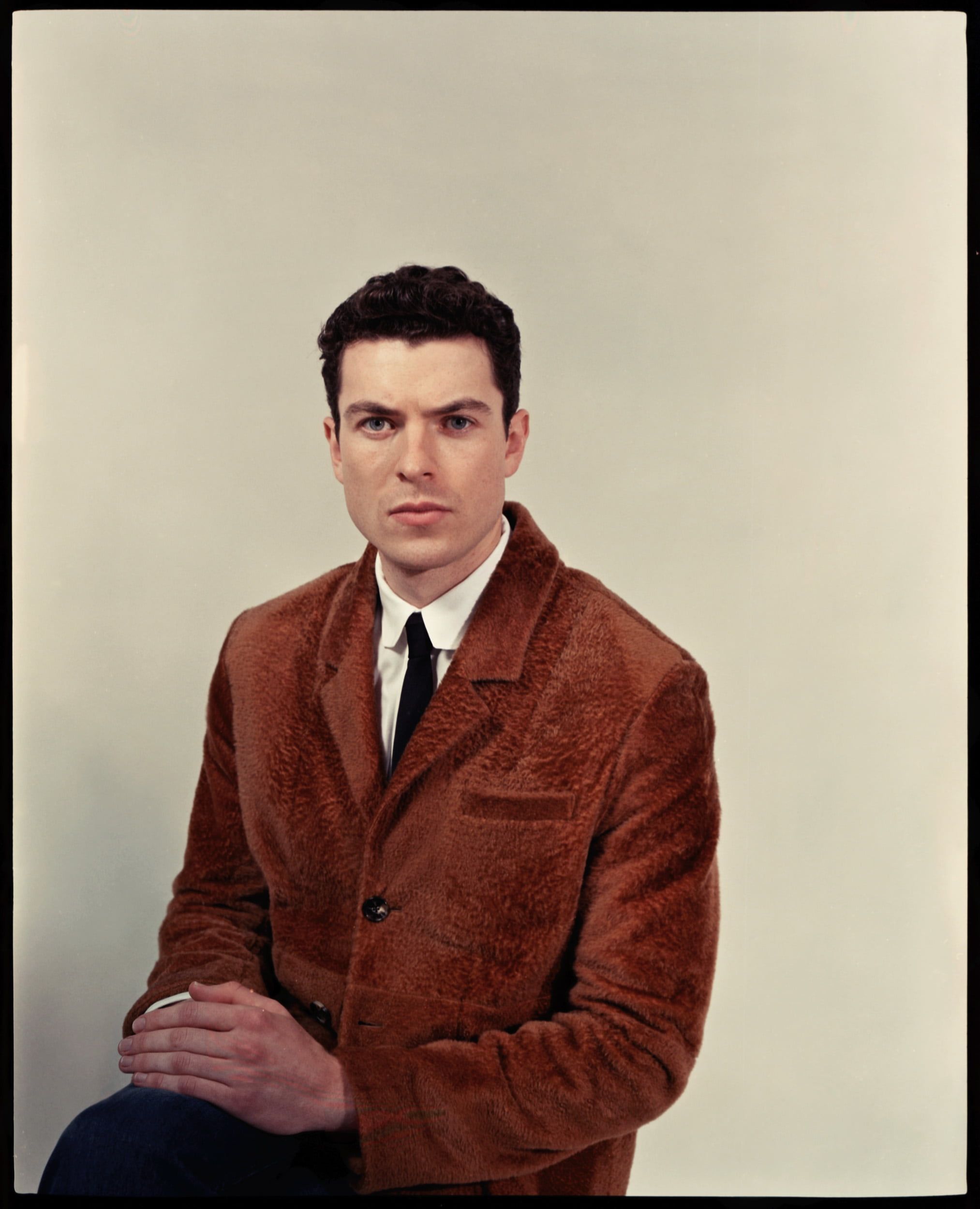
Your first on-screen credit was back in 2020 with Ray Donovan. What was the transition like from drama school to being on set?
Yeah, Ray Donovan was my first TV job and I played a young Ray Donovan which was a great first TV job because I spent my time watching Liev Schreiber work his magic. He’s a great actor to study because he’s very technically capable, he’s one of the best. That was a really helpful transition because going from theatre to your first on-camera job… You don’t know how it’s going to go and there is a lot is going on. But because I felt like I was playing a person who’s already connected to the world in the story, it made it easier.
When you look back at the last four years, how would you say you’ve grown as an actor between the last four years?
That’s a great question. That’s an important question I should ask myself.
Is it something you’re even conscious of? Whenever I speak to actors, they tend to discuss different roles serving like an acting toolkit. Every time you play a new character, you’re asked to bring something new to a role that adds to your toolkit.
Absolutely. The growth aspect is essential. I think starting out, especially on camera, there is a lot of learning about the pace of that environment. I have been doing theatre since I was 12 so I was used to that structure and the level of anticipation that is required — you sit on the wings, step out, and go home. All of that was familiar and that is its own can of worms. Then, in an on-camera environment, there are these periods of waiting that are then punctuated by really compressed periods of pretty intense work. Then, more waiting. You don’t really know where you’re going to be at any given point you’re doing. You’re being introduced to a set and it might be your character’s house and you’re experiencing it for the first time that day. You have to rapidly familiarize yourself with it.
Yeah, immediately you need to get into the mindset of “I live here, I know where things are.”
Exactly. In terms of a toolkit, I think you’re exactly right. You have the script but you don’t have the space or set you’re working in or the actors who you’re just meeting that you’re going to be working with. One of the great things about Masters of the Air is that we worked on it for so long so we all got to know each other. We shot it over a year and that time was spent in close quarters in replica cockpits. That’s just gold when you’re developing relationships off-screen because you can then translate that into the scenes.
In terms of a broader sense of how I’ve grown as an actor after getting out of drama school and dipping my toes in the professional world, a lot of my growth has come from me figuring out how I want to work on set and knowing what works for me. It’s important that I know how to best communicate to a director or other actors to try and bring a scene to life. Knowing what to focus on and what to ignore is a big part of it. I watched a really, really brilliant interview with Emily Watson who spoke with a professor at Oxford, they asked her what piece of advice she’d give to young actors and she said, “Stay focused.” She talked about how, on set, there is so much happening and the superpower is your ability to zone in on what’s happening right in front of you. I saw that a couple of years ago and I’ve kept it with me since.


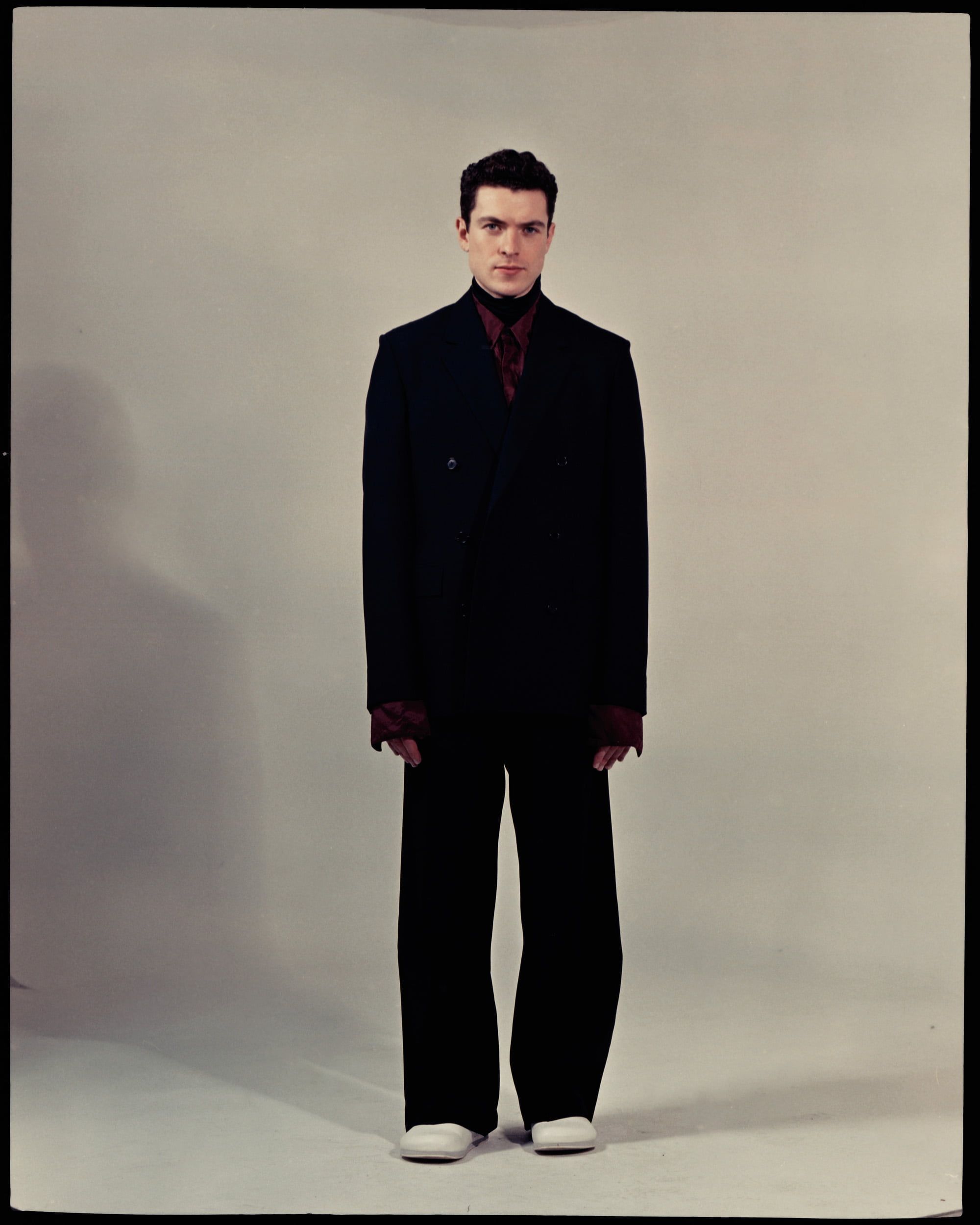
Touching on that, you live in Rosie’s [Robert Rosenthal] world for such a long time. Was it easy for you to disconnect from him after filming wrapped?
It’s hard, I’m maybe not so great at shrugging off characters. It’s a very odd experience because a part of it is living in the project that exists in this compressed timeline, it has its own buoyancy and life to it. Then when that’s gone, it can be a little unmooring. It’s very strange when you play a character for a while when you start having dreams about them and stuff.
It’s like this other person is in the room with you for a year.
100%. Also, in pretty emotional contexts, too. It impacts your spirit in a way, and then when it’s done you think you aren’t going to revisit that. It still wants to resurface. I’m still trying to parse out how to best place those feelings. I had great teachers in drama school who had really specific ideas about how to do that. You kind of want to hold onto it because of that buoyancy that I was talking about, almost like you still want the character to be a part of you. You spend so much time trying to ground yourself in the character in reality that you don’t want to let it go.
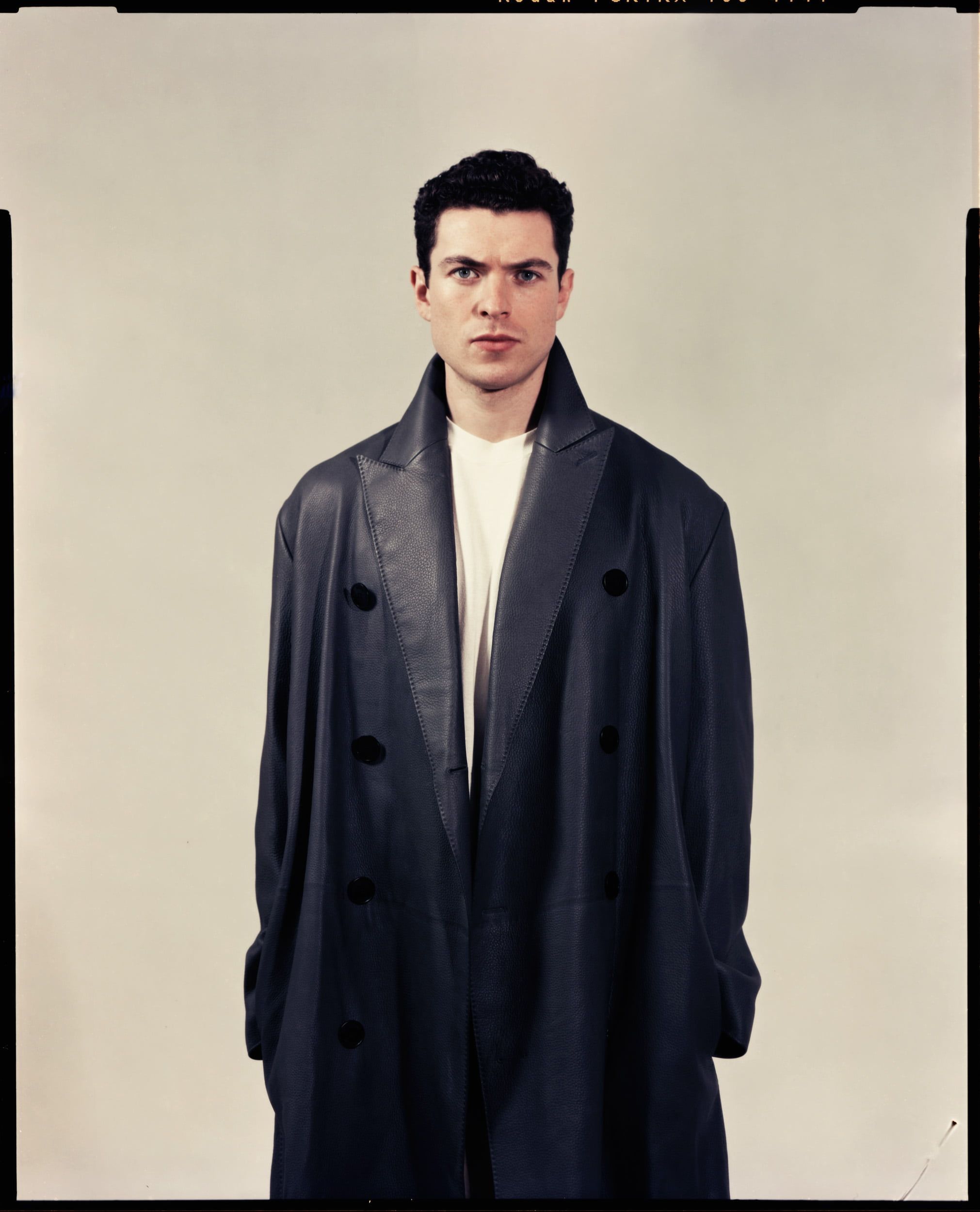

What would you say is the thread that connects you to Rosie?
When I first read the script, there was something so familiar to me about Rosie. He reminded me of my own grandfather, not that I think they were particularly similar in personality but they were both New York Jews born in the 1920s. I think there was definitely some overlap and there’s a sense of place in the world and their sense of responsibility to their society. They wanted to fulfill the American dream because, to them, their purpose was not as much about ambition but about a moral component of trying to create a good life for themselves. My grandfather certainly had that and I think Rosie did, too. His morals were just so strong.
What struck me about him and what I’ve kind of talked about since the beginning of working on this project was he was very warm. He loved music. He never wanted to be referred to as Major Rosenthal on the field, he just wanted to be Rosie. He enjoyed getting close to the people he was working with so they felt they could put their trust in him and vice versa. That is something I found very attractive — it’s that balance between his steely determination and his outrageous courage with his warmth.
Yeah, there are scenes where he just exudes positivity. Even in dark moments, he tries to lift others. What was it like fleshing out his character knowing that he was a real person?
Through this process, I learned that he was an athlete, he played football. There wsa a decent amount of material, like interviews and such where he talked about playing football. I had the chance to meet his son and grandson, Dan and Sam Rosenthal, right at the start of filming when they were over in London. That was kind of a strange experience to meet this, son of this man who I spent so much time with in the preceding months. I had no real relationship with Rosie whatsoever, but it’s almost like you have this person in common [with his son]. I can imagine it’s a bit trippy to meet the person who is going to portray your father, but it was so wonderful and to have his blessings was really great. One of the things he told me was that before the war he was actually drafted my the Yankees.
That is an entirely different life.
Right? It’s absolutely crazy. He was a really good athlete. The only reason why I bring that up is because I think sports, for him, was a very structured environment. You have to score and win at all costs. There’s some war metaphor there. For him, he loved the camaraderie of the team and the spirit. It’s about community. He had a sister and he was close with his mother, but he didn’t have a brother and I think the guys he played with were like his brothers. Then, when he found himself in the 100 [US Eighth Air Force’s 100th Bomb Group], that was familiar to him.
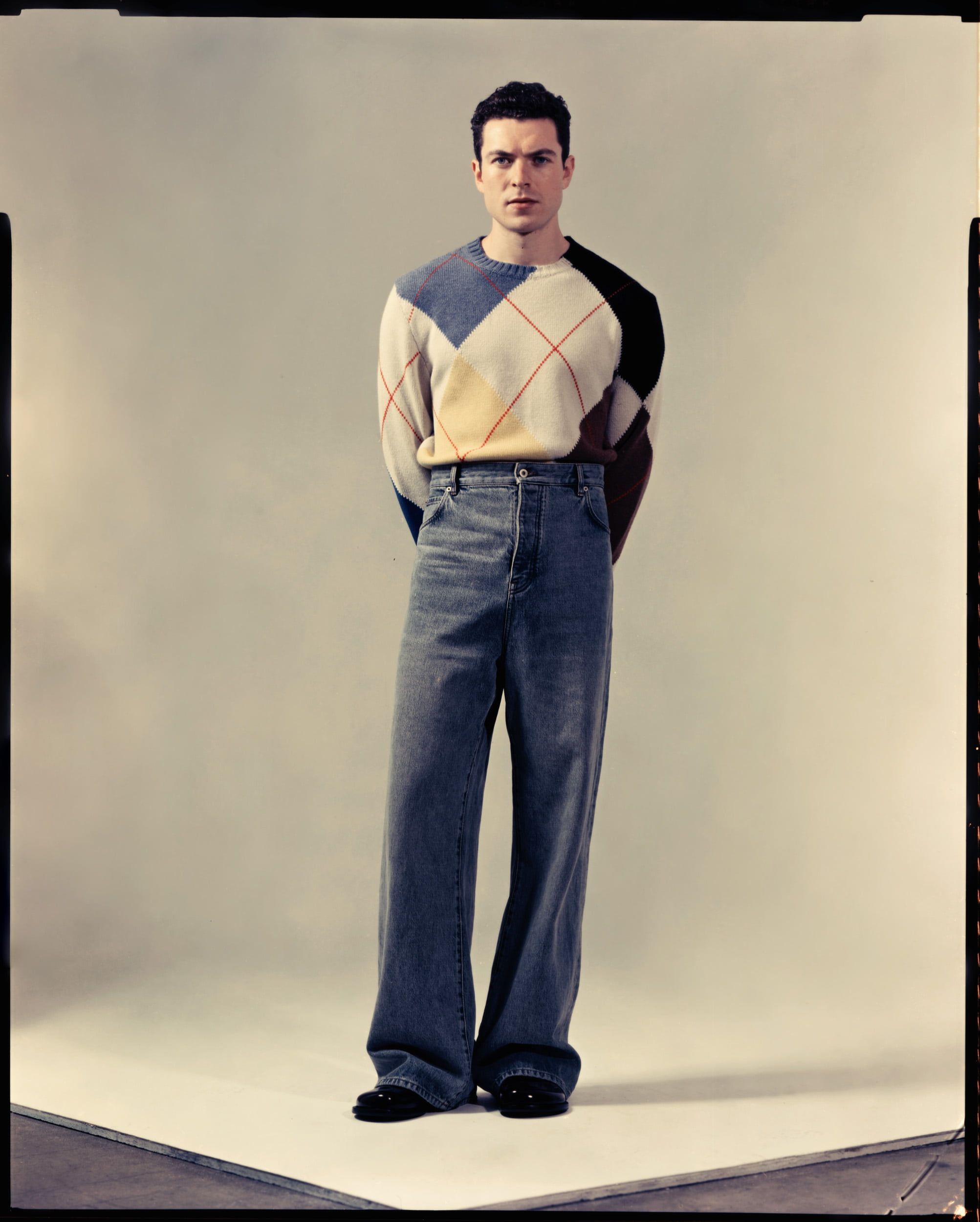
Creating that community on-screen meant you had to build rapport with your co-stars. I read you all undertook a two-week boot camp that a military advisor was in charge of. How did that experience help you?
I didn’t know any of the guys before. This was in 2021 so COVID was still very much around and there was lots of protocols in place. We flew over to London and all had to quarantine. Then, all of a sudden, it’s an explosion of people around you. It was jarring after not seeing anyone and then seeing hundreds of English lads, a lot of whom knew each other.
You’re just the guy from New York trying to make friends! [laughs]
Exactly! Just trying to hold a conversation [laughs]. Then we’re all in uniform and the bootcamp is led by a legend named Dale Dye who worked on Saving Private Ryan and Band of Brothers. He’s an ex-Marine and the inverter of military advisory for film and TV. We heard legendary stories of him leading actors and phishing them. We started looking around and thinking, “What did we get ourselves into?”
He started us out with marching and we would have our designated Squadron leaders. We would march for hours in this little park in the countryside in England. We weren’t great at it initially, we were just stumbling around. But after a couple of days, we began to get the hang of it. There was a rhythm to it. It was important for Dale to emphasize this so that we could understand the mechanical sense of a unit working as one together. We were taken into studios with replica cockpits and military advisors, some of whom have flown some of the rarest antique aircraft on earth. They would explain the gauges, switches, and protocols, like what happens in Episode Five. It was all to make the show’s experience as authentic as possible and to give it texture. It was amazing, the level of detail. That’s one of the best parts of working on a show like that.
Are you someone who loved school? Do you love learning? I feel like as an actor, you are constantly in pursuit of some new knowledge.
100%. I’ve always been curious about planes and stuff. I have always thought they are fascinating, in a boyish way since childhood. Even though my knowledge isn’t very extensive, whenever I fly on a commercial plane, I always look up what type of plane it is. It’s kind of embarrassing. Somebody once told me that when you’re an actor working on something, you’re just looking for a rabbit hole — something that genuinely deeply interests you. It could be as simple as doing a play set in the 1950s in Chicago and you love baseball, then you start researching what the Cubs were doing that year, you know what I mean? That kind of stuff might be your way into it. And for this project, it was easy because it was about planes and equipment, which just helped establish a foundation.
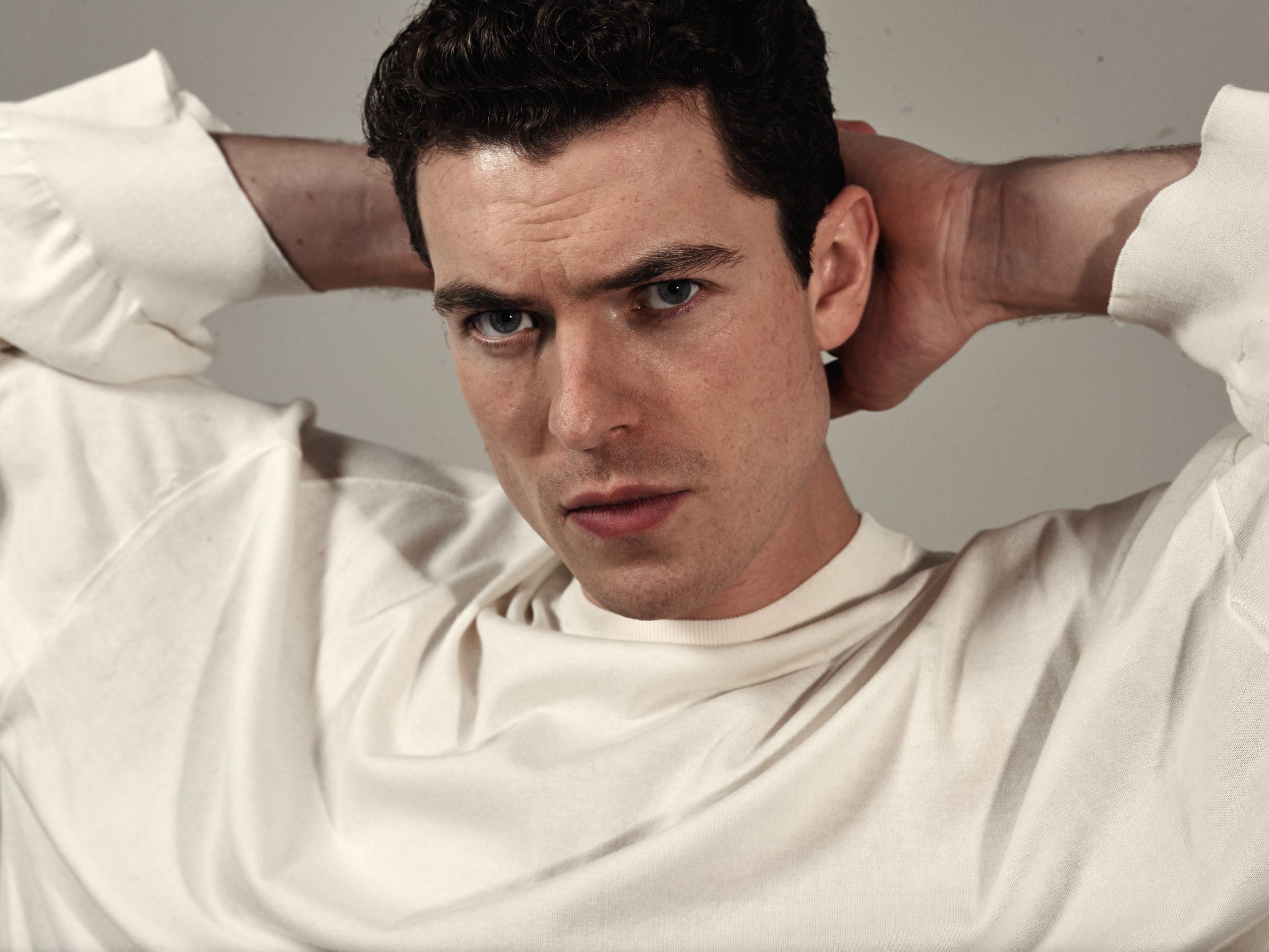
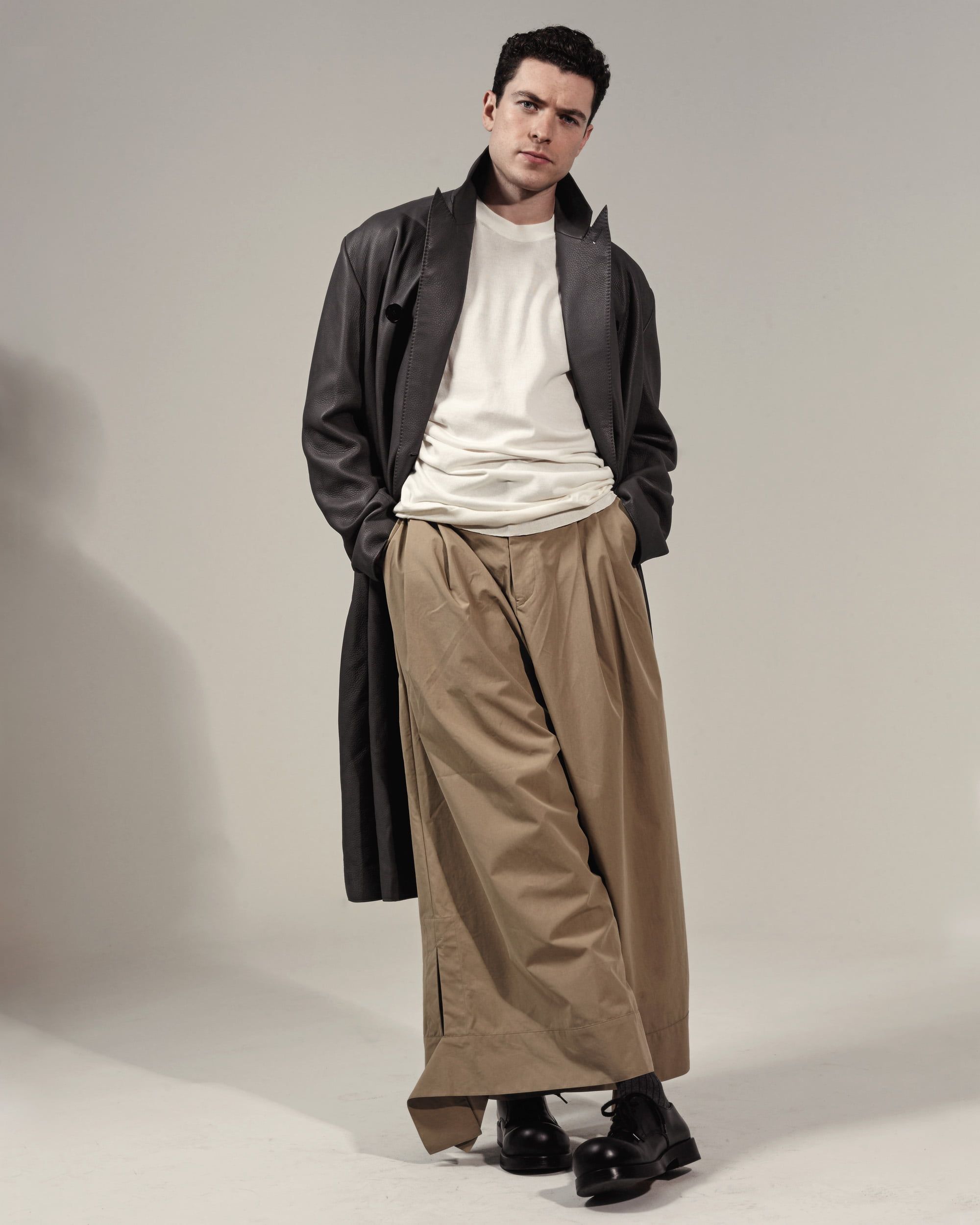
Costumes inform so much of character and it helps actors flesh them out. Since it was war time and you only had a few pieces of traditional clothing, how did that help you get into the character’s mindset?
Really good question. The costume aspect was actually quite helpful. It made you feel like you were stepping into the world. Colleen Atwood, who was our costume designer, is a legend and a genius. It’s a difficult task on a show like this because we’re all wearing uniforms. There’s not a ton of variation, but she was able to kind of like just add these little touches that made it feel personal. There were little touches, like when Rosie shows up a little later in the war so his uniform is more of a later date than some of the others. They were recreations of actual war uniforms, so we would spend a lot of time getting dressed. Different departments put the holsters and guns and parachutes on and you couldn’t do it yourself because it’s difficult.
In episode five, there’s a contrast that I thought was quite powerful — Rosie is watching medics take bodies out of the planes and I feel like that is a moment where he really realizes what is happening out on the battlefield. Did the pressure they’d be facing in real life back then trickle into how you were all feeling on set?
The only way I can describe it is there’s a bit of a surrender that has to happen when the record button is pushed that isn’t happening before it. In particular, it’s the emotional and imagination component that you’re trying to stroke throughout the day so that when it does get to that moment, it’s as authentic as possible. In that case, this was a scene where they were taking men out of planes in a very specific order. I had to know where the camera would be and when so I could react. That has nothing to do with what’s happening in the scene, but it’s my job to forget where the cameras are and watch what’s happening in front of me given the context of what the characters just went through. At that moment, it’s about getting into his mindset — he landed the plane and is in the process of figuring out what happened or how it happened. He has no idea what shape the other men are in. It’s when I have to process the raw experience and try to translate that.

In episode six, Rosie goes to an estate to recuperate, but he longs to return to base. I wanted to talk to you a bit about the juxtaposition of that as an actor — did it feel jarring to be there after being at war?
It certainly felt very different. It’s a true story and they did go to these flack houses, which is a pretty grotesque name. They were sent to these places to rest and recuperate from “combat fatigue” is what they would call it. Rosie wasn’t interested. I think the way we explored in the show is in more depth than how he spoke about it after the war. For him, when he spoke about it he shrugged it off but I think it was a lot more complicated than that.
Yeah, I can imagine that it would be jarring to watch people enjoy their day and play cricket while friends are at war.
Exactly. It was one of those moments where I was grateful not to have been familiar with the English countryside and the estate situation because it’s different from anything I’m used to. Those family estates have been around for centuries, they are vast and beautiful and very ornamented. You can’t even imagine someone living there. It was such an important part, filming those scenes because it is kind of like, “What are we doing here?”
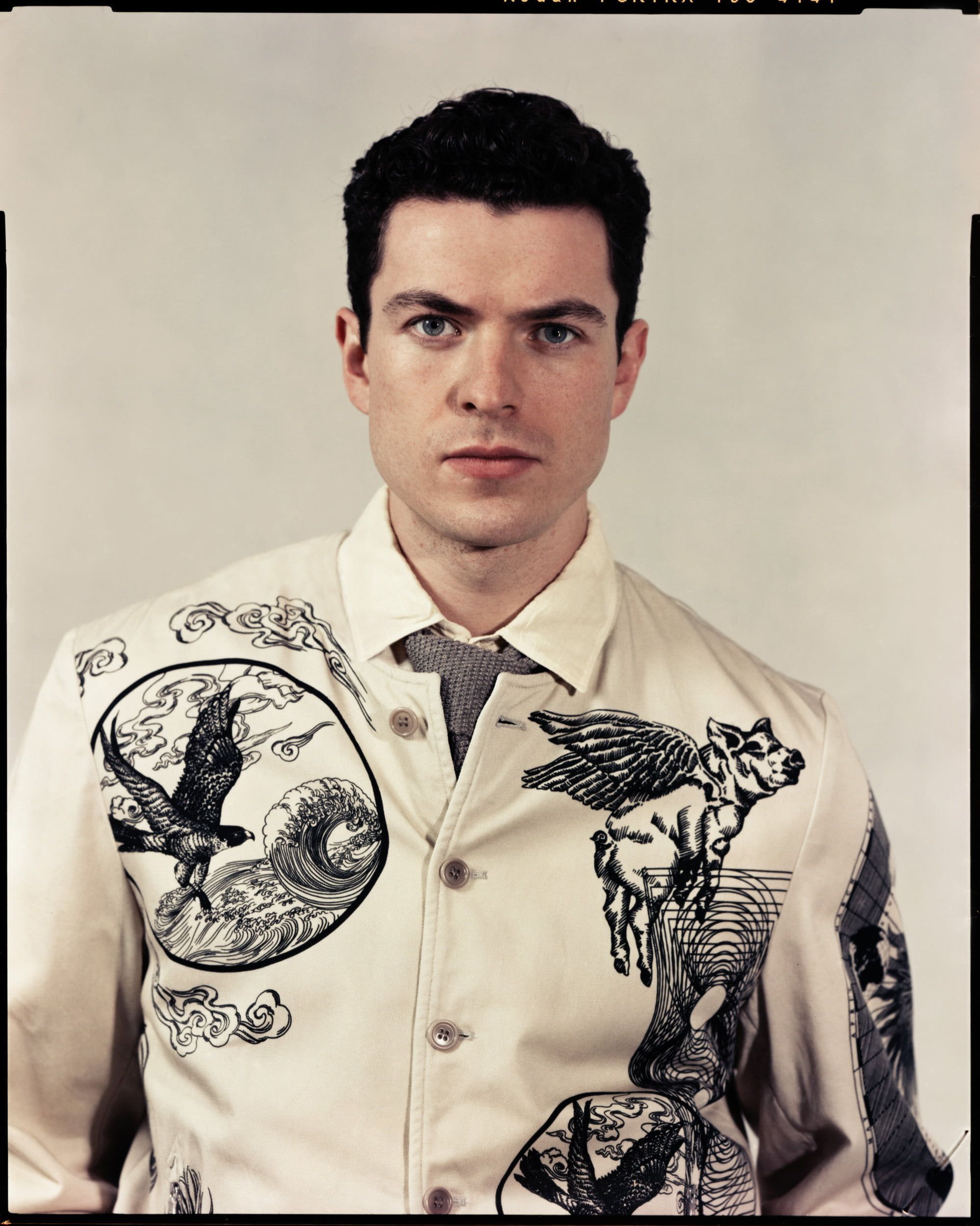
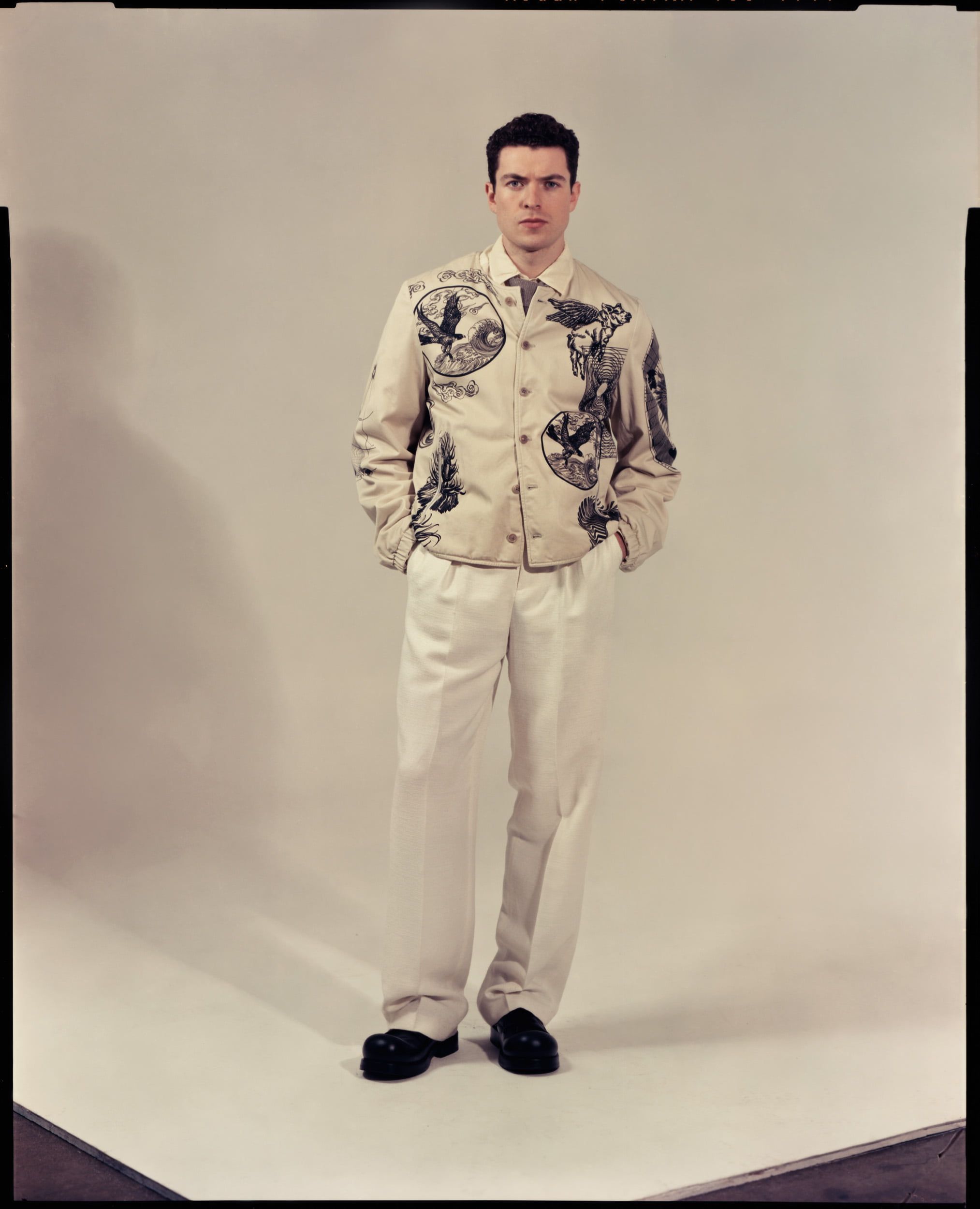
When you think back during your time, is there a specific scene or moment during filming that really stands out in your mind as a special one?
There were so many… Thinking about it now, there’s a scene in that [estate] sequence where Rosie is reading this book on the side of the pond. The other guys and his crew are in these little rowboats on the pond and just screwing with each other, messing around. At that point, he has this realization that this trip is important to them and it was important to all of them to get this time together. Those other actors I had gotten quite close with and it was this experience where the scene overlapped with real life, just watching friends have a good time. The scenes where it feels like there is that connection are the best.
I like to ask actors the advice they’d give their characters knowing their arc over the series, but I think what might be better is what you would say to Rosie if you could tell him something?
I think that’s a good question. There are things that I would ask him but I would actually love to talk to him about music. He was really into jazz and everyone talked about how much he loved jazz.
There is a line at the end where he tells another person to bring their infant son to a jazz club!
Yes! I would want to ask him about his jazz heroes because I think that would be interesting. There are things about him that I don’t know that happened after the war. I know a little bit of the kind of like immediate post-war history, like meeting his wife and having kids and going back to New York. I want to know what it was like to acclimate back to civilian life and what that was like. I think that’s one of the most difficult challenges for soldiers coming back from war, especially in the context of really intense combat.
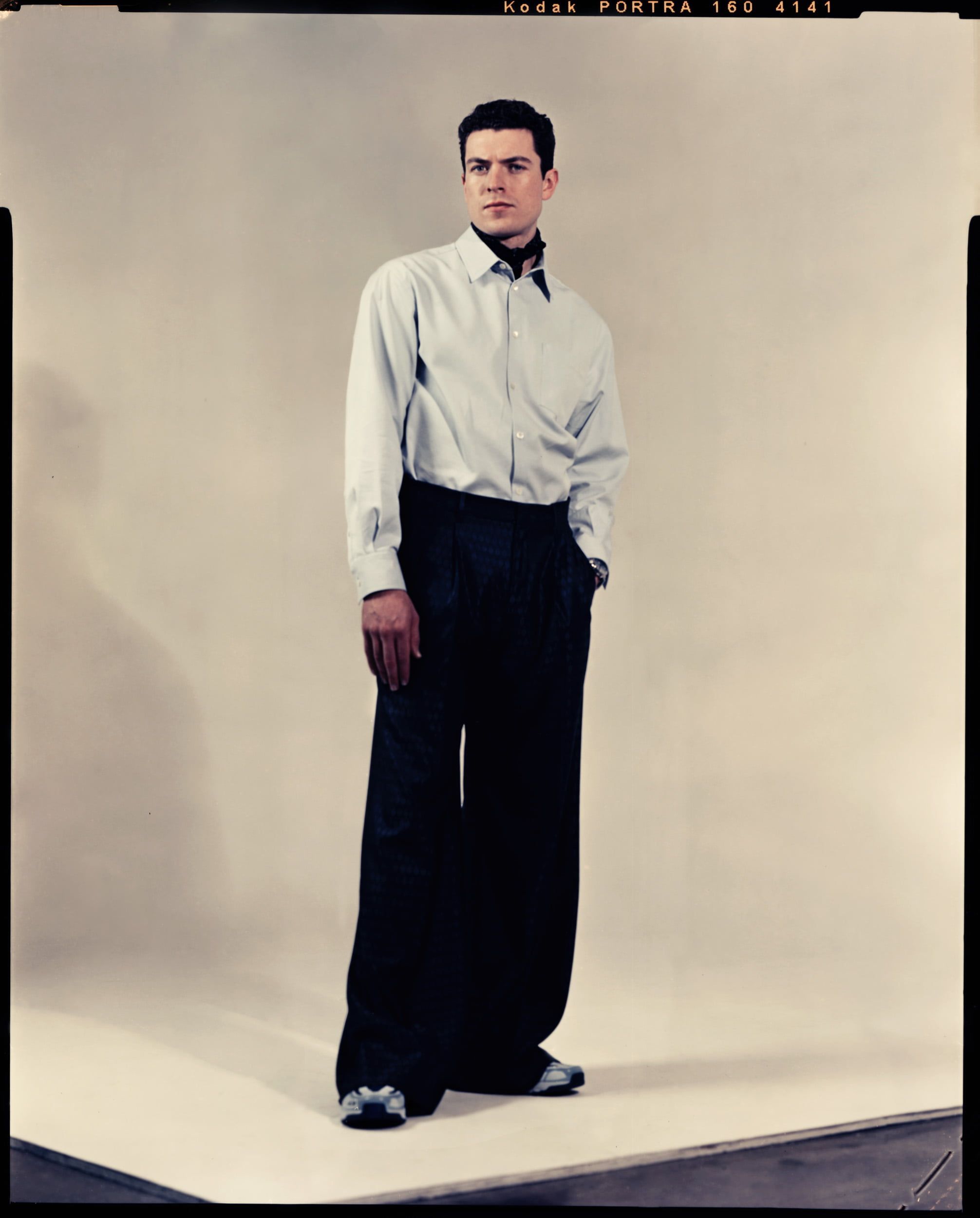
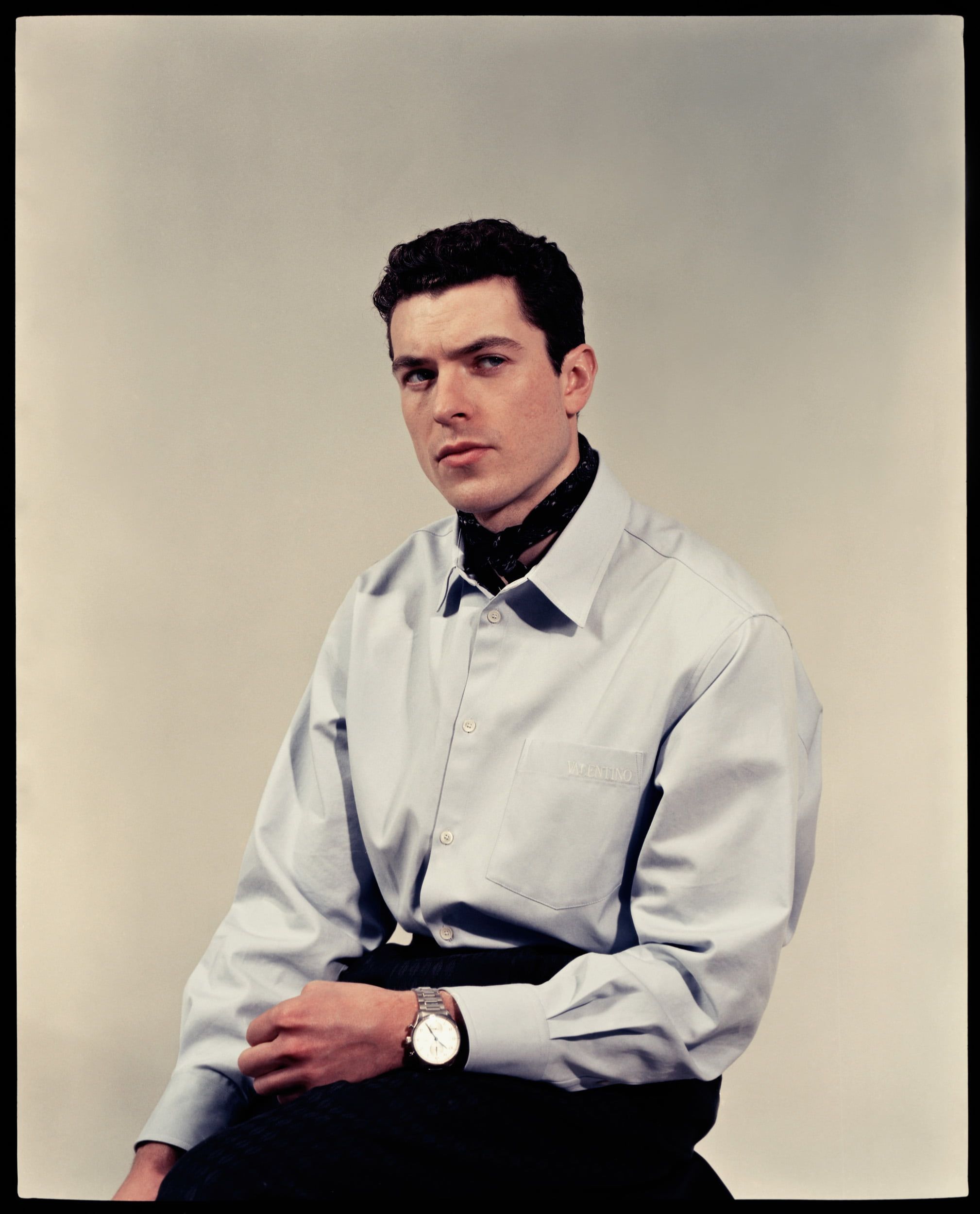
Masters of the Air is streaming now on Apple TV.
Interview Kelsey Barnes
Photography Ben Duggan
Styling Douglas VanLaningham @ The Rex Agency
Grooming Sonia Lee for Exclusive Artists using Balmain Hair Couture
Styling Assistant Jose Santiago
Studio The Ivory Space


